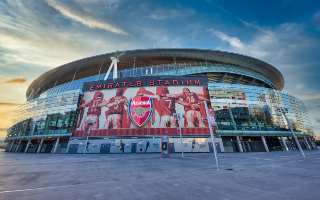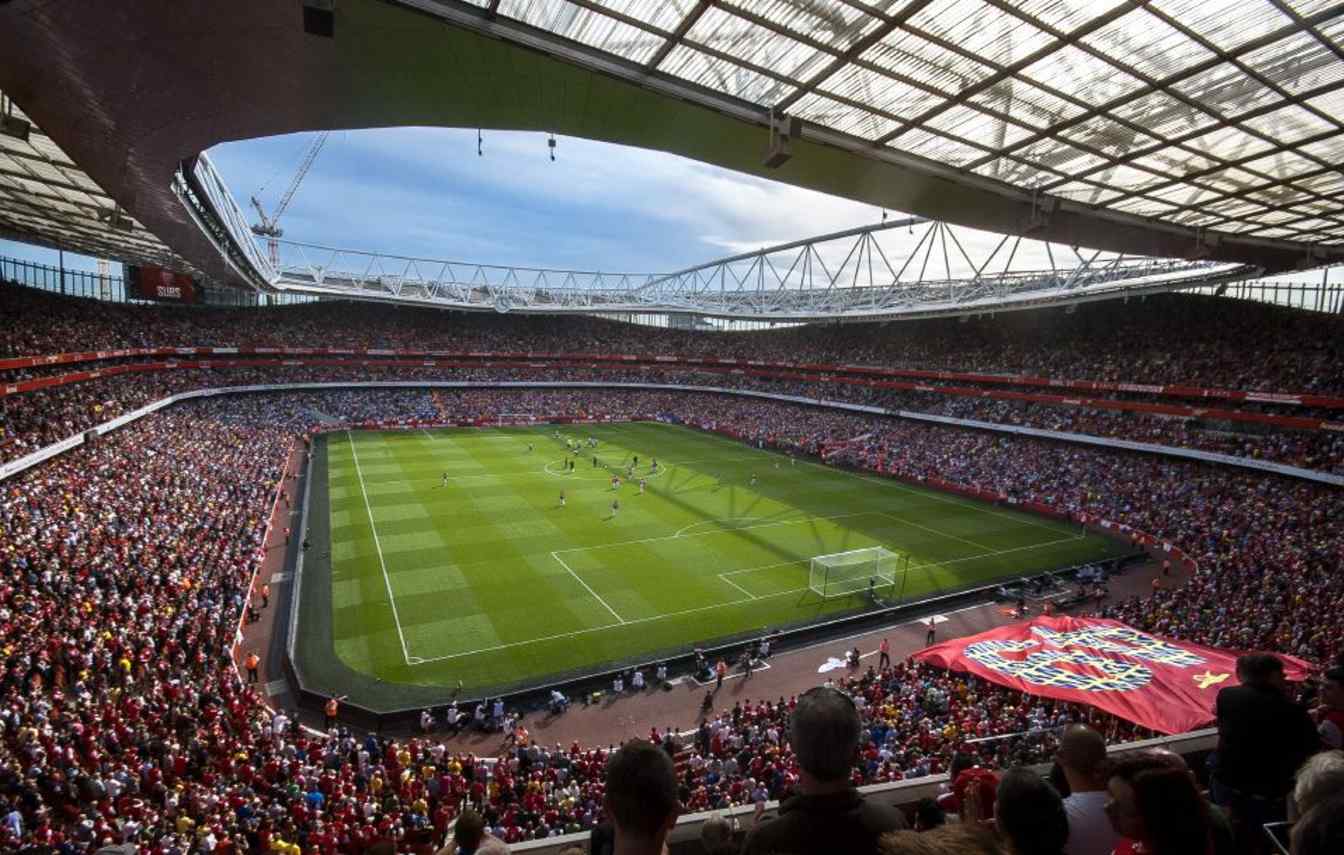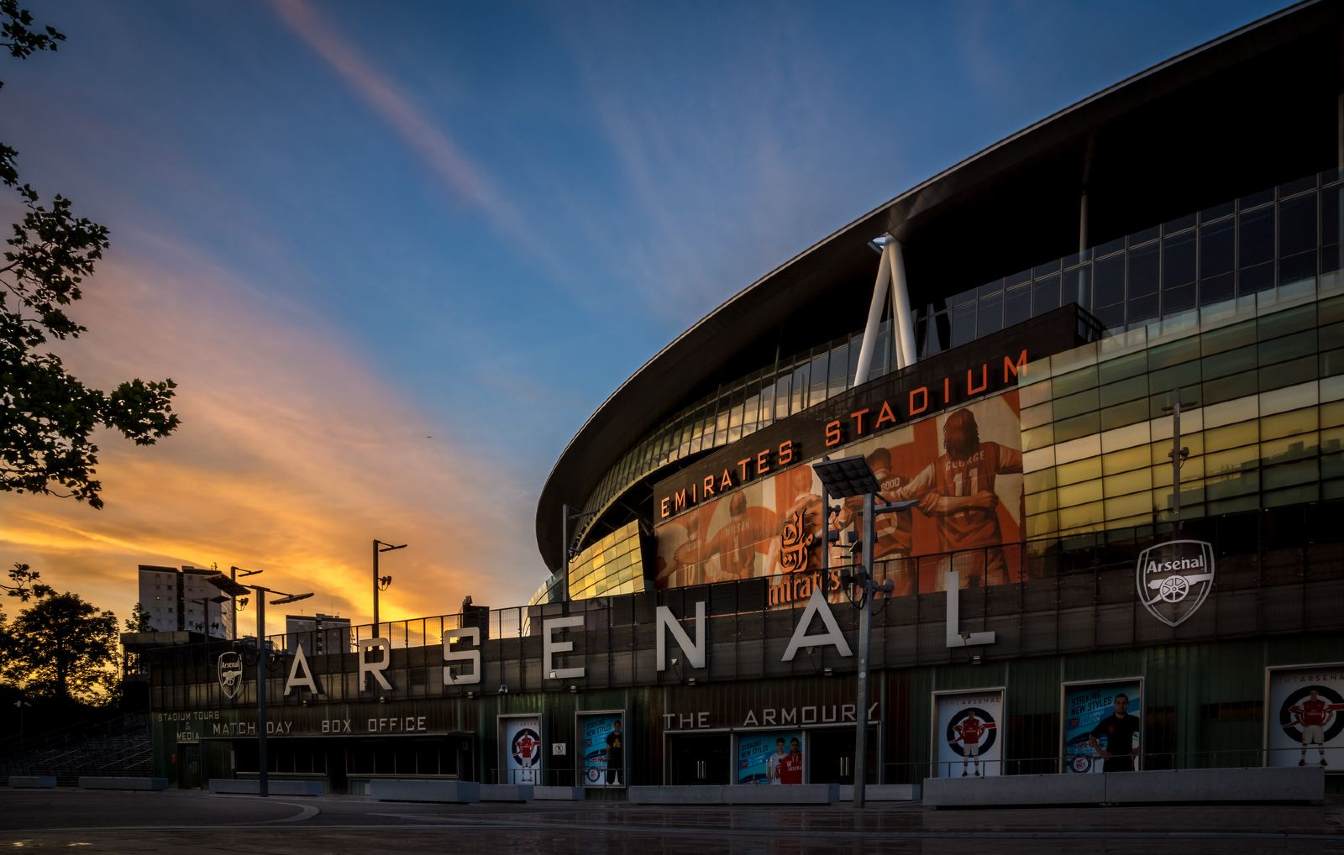England: Arsenal planning Emirates expansion and temporary switch to Wembley
source: StadiumDB.com; author: Paulina Skóra
 Arsenal are considering several proposals for a major redevelopment of the Emirates Stadium — a project worth up to £500 million that could restore its status as the largest football venue in London, overtaking both West Ham United and local rivals Tottenham Hotspur.
Arsenal are considering several proposals for a major redevelopment of the Emirates Stadium — a project worth up to £500 million that could restore its status as the largest football venue in London, overtaking both West Ham United and local rivals Tottenham Hotspur.
Advertisement
Catching up with the neighbours
The plan aims to raise the stadium’s capacity from 60,700 to over 70,000 seats. The club is exploring ways to alter the slope of the stands and reorganize seating layouts to accommodate more fans while maintaining the Emirates’ distinctive exterior design.
Most of the work would take place inside the structure. Beyond boosting annual revenues by tens of millions of pounds, the expansion would also help reduce the season-ticket waiting list, which now exceeds 100,000 names. The project, however, is complex and costly — potentially running into hundreds of millions. If construction goes ahead, Arsenal may need to temporarily move home games to Wembley, as Tottenham did, paying £15 million to play there over two seasons.
Opened in 2006, the Emirates Stadium was once a benchmark for modern football grounds in Britain. But today Arsenal rank only fifth in league attendance, behind Manchester United, Liverpool, Tottenham and West Ham.
Multiple options on the table
Despite the space constraints — the stadium sits on a 17-acre site in densely built-up Islington — architects are optimistic about expanding within the existing footprint. Arsenal’s working group is studying several options, assessing both costs and potential revenue. Ideas include raising the roof, adding new tiers, or reconfiguring existing stands to create more standard and premium seating.
The project draws inspiration from Real Madrid’s recent Santiago Bernabéu redevelopment, which increased capacity to around 80,000 and nearly doubled matchday revenue to €241 million per year. The Emirates project could cost up to £500 million, making it one of the largest infrastructure investments in the club’s history. Arsenal’s owners, the Kroenke family, have considerable experience in this field, having overseen the $5.5 billion SoFi Stadium project in Los Angeles.
The club has not yet submitted a planning application but is preparing for talks with local authorities — a process that could take up to five years. Arsenal’s motivation is clear: under the Premier League’s agreement with Manchester City, spending on players is now tightly linked to revenue, making increased matchday income a key factor for future growth.
 © Tim Snell (cc: by-nd)
© Tim Snell (cc: by-nd)
Cautious fan reactions
The Arsenal Supporters’ Trust welcomed the news with cautious optimism: We’re pleased the club is exploring all possibilities. Every week we see the huge demand for tickets. But we also remind the club that, as a community institution, it must ensure expansion doesn’t come at the expense of ordinary supporters. The balance between accessibility and hospitality spaces is essential.
Advertisement
 StadiumDB
StadiumDB